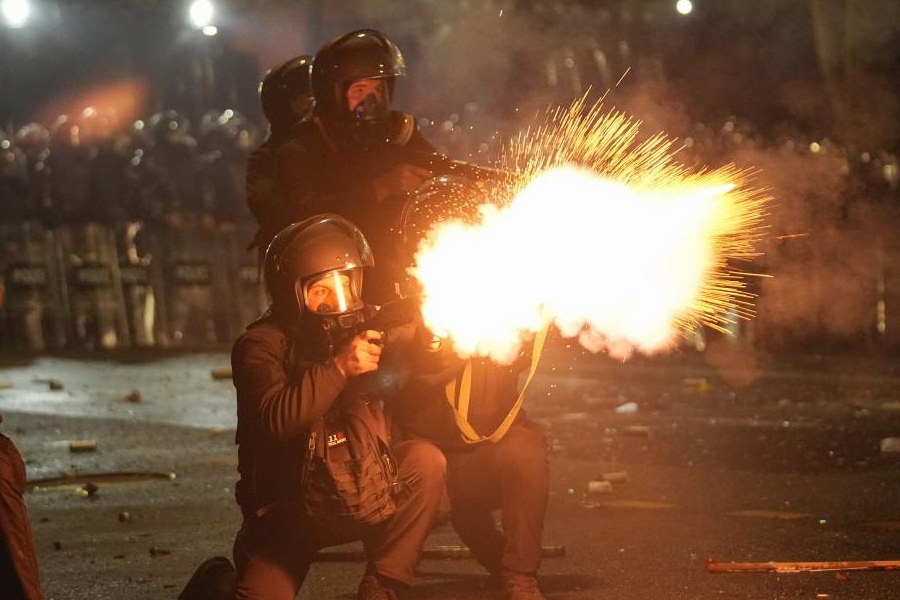Georgian police on Wednesday raided the offices of an Opposition party and arrested its leader in an apparent attempt to squelch a wave of mass protests triggered by the governing party's decision to suspend negotiations on joining the European Union.
During the past six nights, riot police used water cannons and tear gas to disperse the demonstrators, who threw fireworks at police officers and built barricades on the Georgian capital's central boulevard. More than 300 protesters have been detained since Thursday and over 100 people have been treated for injuries.
On Wednesday, the Coalition for Change opposition party said that police raided its offices and detained its leader, Nika Gvaramia. It shared a video showing several officers dragging Gvaramia into a car.
Georgian media reported that police also raided the offices of several other opposition groups and non-government organizations.
Prime Minister Irakli Kobakhidze of the Georgian Dream party said the raids targeted those who encouraged violence during protests in an attempt to topple his government. “I wouldn't call this repression; it is more of a preventive measure than repression,” he said.
The ruling Georgian Dream retained control of parliament in the disputed Oct. 26 election, which was widely seen as a referendum on Georgia's EU aspirations. The opposition and the pro-Western president have accused the governing party of rigging the vote with neighboring Russia's help and boycotted parliament sessions.
Mass opposition protests sparked by the vote gained new momentum after the governing party's decision on Thursday to put the EU accession talks on hold.
Georgian President Salome Zourabichvili refused to recognize the official election results and contested them in the Constitutional Court, which rejected her appeal on Tuesday. Zourabichvili, who plays a largely ceremonial role, has declared that she would stay on the job even after her six-year term ends later this month to lead the opposition demand for a new parliamentary election.
Zourabichvili urged the country's Western partners to respond to Wednesday's wave of police raids of opposition groups by putting “strong pressure on a ruling party that is driving the country over the cliff!” “Do not be late!” she wrote on social platform X.
The EU granted Georgia candidate status in December 2023 on condition that it meet the bloc's recommendations, but put its accession on hold and cut financial support in June after the passage of a “foreign influence” law that was widely seen as a blow to democratic freedoms. It requires organizations that receive more than 20% of their funding from abroad to register as “pursuing the interest of a foreign power,” similar to a Russian law used to discredit organizations critical of the government.
The Georgian government's announcement of the EU accession talks' suspension came hours after the European Parliament adopted a resolution criticizing October's election as neither free nor fair.
On Monday, the EU reiterated its “serious concerns about the continuous democratic backsliding of the country.”
Kobakhidze said Tuesday that his government is willing to open EU accession talks if the bloc ends its “blackmail.”












